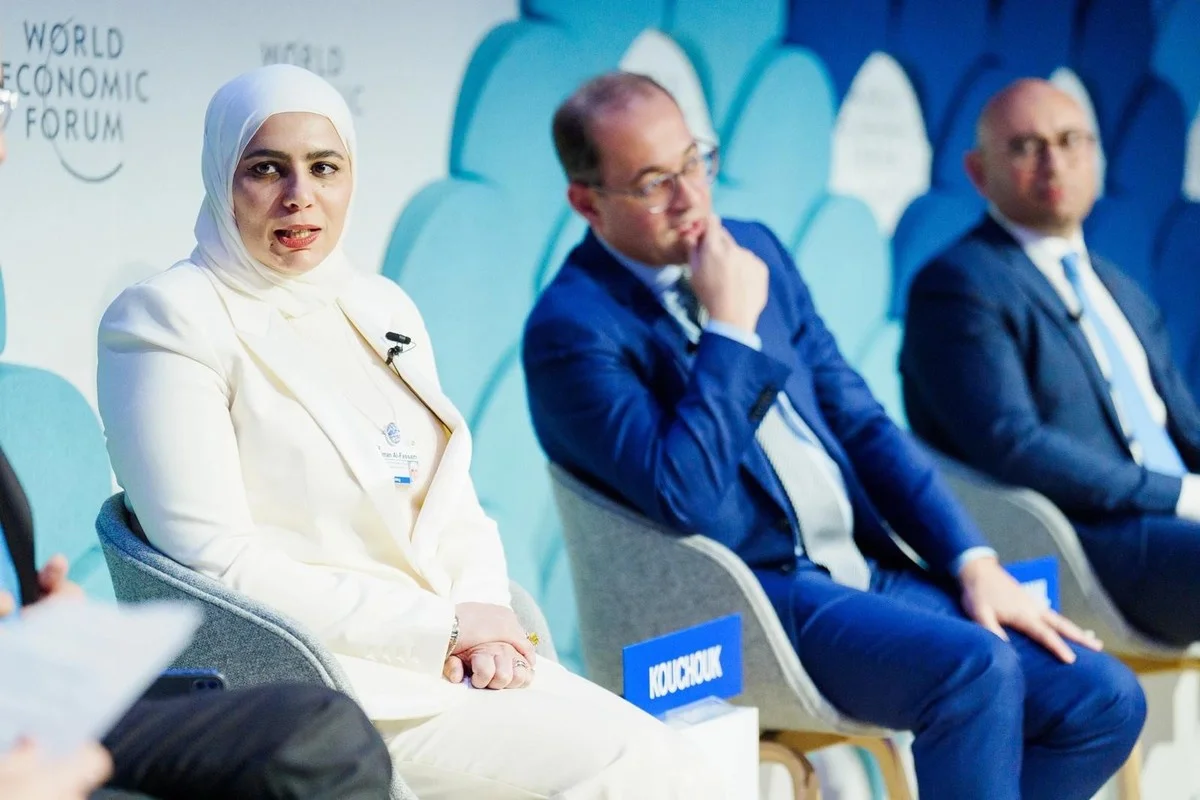23/01/2025
23/01/2025

DAVOS, Switzerland, Jan 23: Noura Al-Fassam, Minister of Finance and Minister of State for Economic Affairs and Investment, emphasized that 2025 will be a pivotal year for Kuwait as the government works to implement its ambitious plans under a clear strategy aimed at achieving Vision 2035. Al-Fassam made these remarks during a high-level dialogue session titled "Long-term Growth in the Middle East and North Africa Countries," part of the activities at the annual World Economic Forum meeting in Davos. The session saw the participation of finance ministers from various Arab countries, alongside senior private sector officials.
In her speech, Al-Fassam addressed the expectations and aspirations surrounding economic development in the region, highlighting both the challenges and opportunities present. She stressed that relying on a single source of income is no longer acceptable, noting that Kuwait is actively working on economic and tax reforms to strengthen its national economy.
Al-Fassam pointed out that the region, including Kuwait, possesses a youthful workforce. She said, "We believe that the efforts of the youth will lead us into the digital age, and we are focusing on sustainable projects, especially in the field of renewable energy." She emphasized that Vision 2035 is more than just a roadmap; it is a promise to future generations to foster economic sustainability, diversify income sources, reduce dependence on oil, and strengthen the economy’s resilience in facing future challenges.
The minister also underscored the importance of enhancing digital infrastructure through public-private partnerships. She noted that creating legislation that attracts foreign investment is essential to building a promising future for coming generations.
Regarding global economic challenges, Al-Fassam identified geopolitical risks, climate change, and the emerging risks associated with artificial intelligence as the foremost challenges for 2025. She stressed that addressing these issues requires close cooperation between the public and private sectors to leverage technology for economic growth, benefiting all of humanity.
The dialogue session also highlighted the growing role of technology and innovation in transforming the region’s economic landscape. Rapid advancements in artificial intelligence, smart industries, and energy transition are creating new opportunities for economic growth. Participants discussed pressing issues such as high unemployment rates, which continue to impede economic progress in several regional countries. To overcome this, they emphasized the importance of not only providing job opportunities but also developing the necessary skills for the labor market, investing in modern technologies, and promoting economic reforms that drive growth and improve stability in the region.
The annual meeting of the World Economic Forum, which kicked off on January 20 under the theme "Cooperation in the Smart Age," will continue until Friday of this week.


